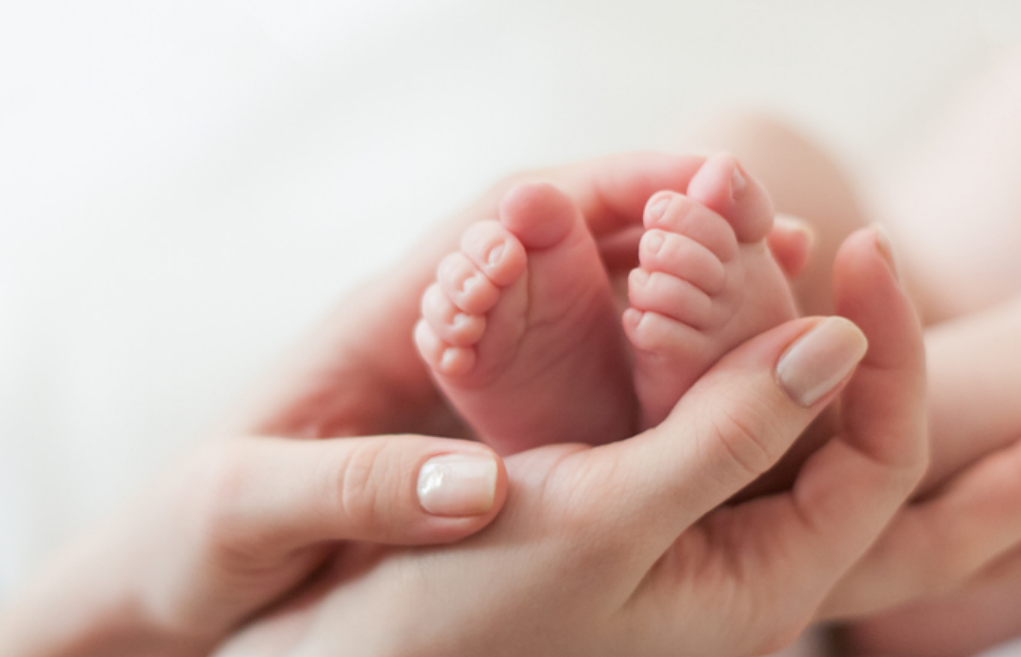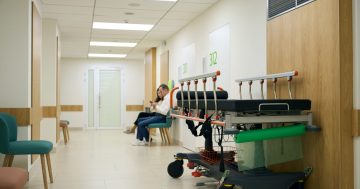
New genetic testing in South Australia will test for spinal muscular atrophy or severe combined immunodeficiency. Photo: Department of Health and Aged Care.
South Australian families with newborn babies will have greater access to genetic screening thanks to a State Government investment into multiplex neonatal screening equipment.
The new equipment uses state-of-the-art DNA gene testing technology to identify babies with spinal muscular atrophy or severe combined immunodeficiency, and comes from an injection of $424,000 from the State Government and $1.46 million over four years from the Federal Government.
A South Australian Government release says babies with spinal muscular atrophy have the best outcome when the disease is diagnosed within the first 14 days of life so that treatment can commence as soon as possible after detection.
The occurrence of spinal muscular atrophy is detected in approximately two babies every year, and one baby every two to three years for severe combined immunodeficiency. Spinal muscular atrophy affects the nerve cells controlling muscle movement, which causes muscle weakness and wasting leading to difficulty in crawling, sitting, and walking, and their ability to breathe and swallow.
Severe combined immunodeficiency is caused by defects in cells of the immune system with babies appearing healthy at birth, but soon impacted by recurrent, severe and unusual infections.
For cases of severe combined immunodeficiency, these can be fatal if not detected and treated early with haematopoietic stem cell transplant.
State Minister for Health and Wellbeing Chris Picton says advocates and families have been asking for spinal muscular atrophy and severe combined immunodeficiency testing for years.
“These tests save lives,” he said. “Adding these conditions to the routine panel of newborn screening will provide life-changing treatment to those affected babies and provide families with additional peace of mind.
“This gives families the ability to start targeted clinical care and treatment as soon as possible, giving their children hope for the future.”
Federal Health Minister Mark Butler said every newborn deserves access to world’s best screening.
“The government is delivering on our election commitment to put an end to the newborn screening postcode lottery by making sure every baby born in Australia has access to the same screening program,” he said.
“This historic approach to newborn screening with state and territory governments will deliver a nationally consistent approach to newborn bloodspot screening. Newborn screening will not only save lives but will deliver better outcomes through early intervention.
“We want parents to be confident that no matter which hospital their child is born, their baby will be appropriately and consistently screened for rare conditions, that the screening result is accurate and that they will be connected to support and services wherever they live.”
SA Pathology Clinical Service Director, Dr Jill Lipsett added, “We know that the newborn screening health check is an incredibly important part of a baby’s first few days of life and we’re thrilled to be able to expand this service to test for both spinal muscular atrophy and severe combined immunodeficiency.
“The implementation of newborn screening for spinal muscular atrophy and severe combined immunodeficiency utilises highly sophisticated DNA testing requiring both new state-of-the-art equipment and highly specialised scientific staff, and we have worked hard to implement this as quickly as possible.
SA Pathology genetic pathologist at the Women’s and Children’s Hospital Dr Carol Siu said being able to test for spinal muscular atrophy and severe combined immunodeficiency is something that has been needed in South Australia for some time.
“We’re incredibly excited about the State Government’s commitment to ensuring these tests are available as soon as possible,” she said. Both conditions are life-threatening, but treatments with great efficacy are available.
“Early detection is the key for better outcomes and the aim is to start treatments within the first 14 days, so newborn screening will play a vital role in the lives of these children and their families.”



